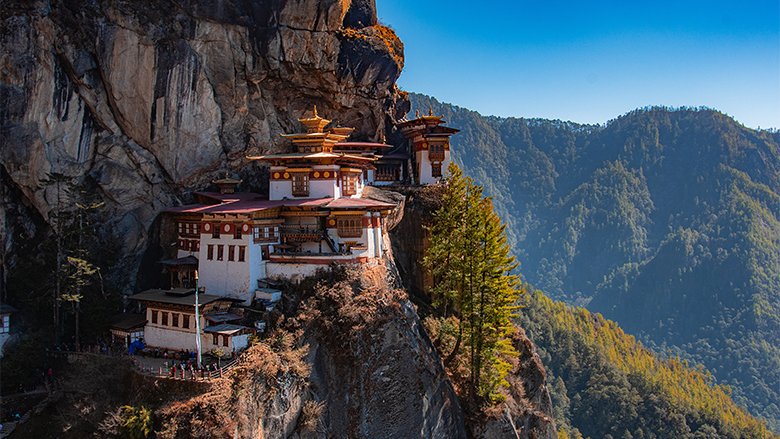While environmental policies and accomplishments have helped to build the country’s uniquely “green” image, in the long run, despite the government’s commitment to sustainable resource use and conservation, Bhutan is vulnerable to the impacts of climate change and is facing other emerging environmental challenges resulting from urbanization, pollution, and waste management.
Some of the most challenging climate risks which Bhutan faces are hydrological, making its most important economic sectors (hydropower and agriculture) highly vulnerable to climate impacts. While hydropower has kept Bhutan’s emissions and sustainability agenda on track, high dependence on this sector leaves Bhutan’s economy highly vulnerable. Overall, Bhutan has a lower resilience to climate change impacts when compared with other Lower middle-income (LMI) countries.
The Country Environmental Analysis (CEA) takes a new look at Bhutan's development path by incorporating its remarkable conservation and nature protection achievements into a broader conversation about emerging growth opportunities. The CEA delves into Bhutan's sustainability profile and explores socioeconomic indicators beyond GDP and growth rates. It uses several analytical tools to identify key development challenges, knowledge gaps, and opportunities for sustainable growth.
The Green, Resilient, and Inclusive Development (GRID) benchmarking highlights significantly elevated threats from natural disasters that threaten lives and livelihoods. Low access to social protection programs could further increase the country’s vulnerability to natural disasters, including earthquakes, floods, and landslides causing a significant amount of damage each year. Assets equivalent to approximately 2.3 percent of GDP are damaged each year due to natural disasters, which is more than twice the average for LMI countries.




